Contact tracing: 'My new job as a Covid-19 detective'
- Published
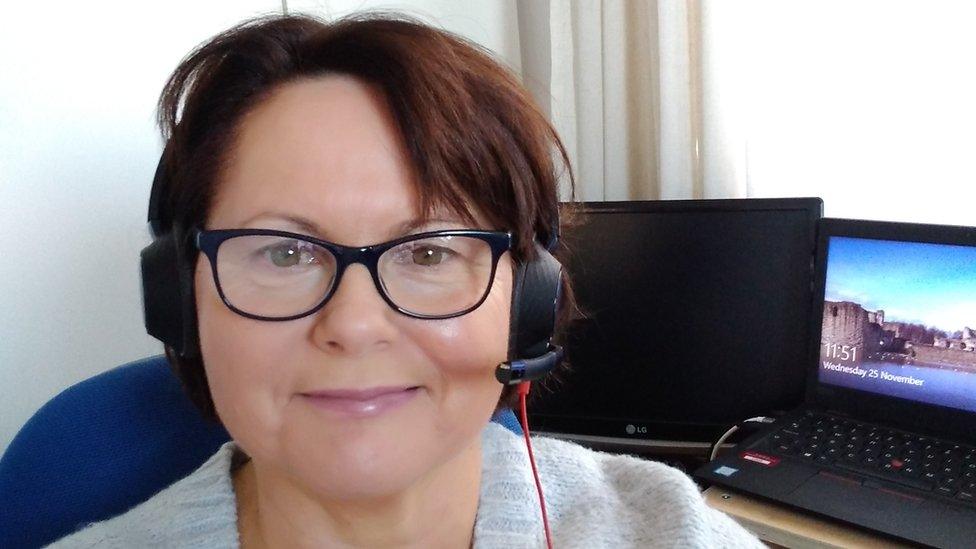
"I wanted to do something to help…I can't work on a ward in a hospital but I can do this," said Bridget Thomas
Contact tracing is seen as an important part of controlling the spread of Covid-19. Wales' system has consistently managed to reach the majority of cases and their close contacts, despite the pressure of rising numbers. But what's it like to work in this new role?
Bridget Thomas' job at the North East Wales Archive has long allowed her to indulge her passion for history - but this year she's been playing a part in the historical events of 2020.
The archive is run by Flintshire and Denbighshire councils, and the 59-year-old was internally redeployed in June, splitting her time between her normal job and using her research skills as a tracer for Test, Trace, Protect (TTP).
"I wanted to do something to help. I can't work on a ward in a hospital, but I can do this," she said.
'Working as a contact tracer can be intense'
Her role, after a period of training, has entailed calling people who have tested positive to ask - and sometimes persuade - them to name the people they have been in contact with.
The positive cases are normally expecting the call - but tracers like Mrs Thomas know nothing about them.
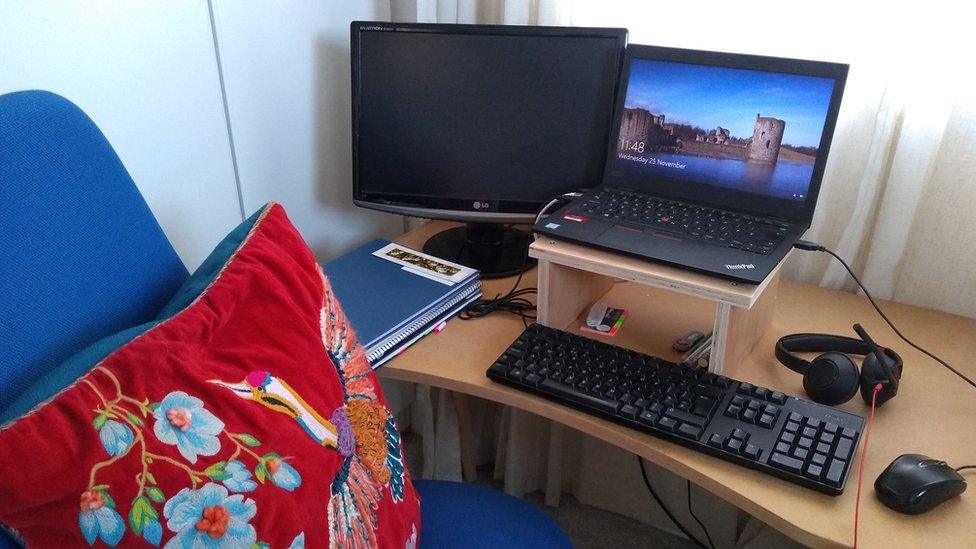
Bridget Thomas hurriedly built herself a plywood desk so she could work from home as a tracer
"It can be quite intense. I deal with people of all ages, and people in care home settings, families, people who are very ill, or people who have been recently bereaved by Covid - it could be any scenario," she said.
"But people are disarmingly honest and open. Sometimes they'll say 'I know I shouldn't have done that', but I brush over that - it's done and gone.
"They generally don't seem worried for themselves. They worry about other people - infecting their children, or infecting their elderly parents if they care for them.
"We're not clinicians and there is a system in place to escalate [non-emergency medical queries]."
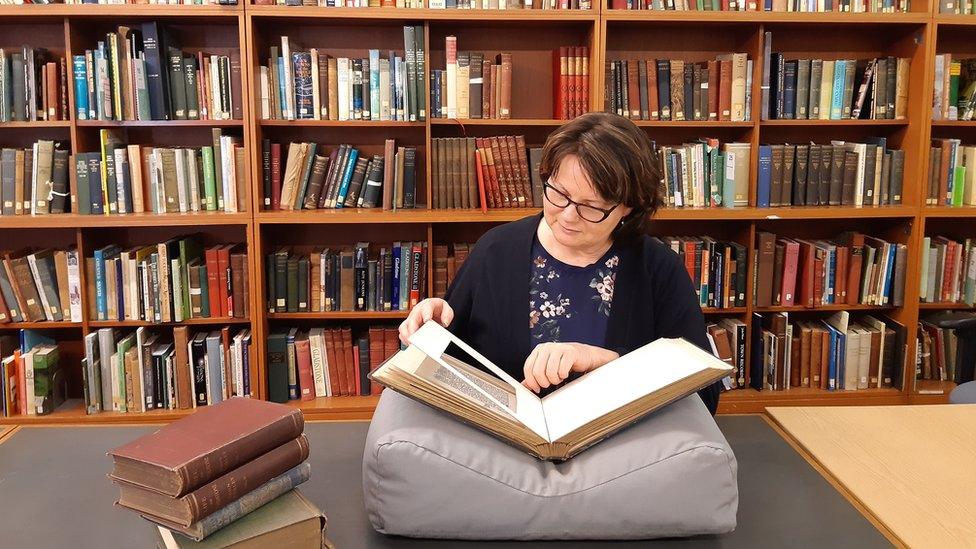
Bridget Thomas's main job in the North East Wales Archive involves searching through historical records
The names the positive cases give them are passed on to TTP "contact advisers", who call to tell them to self-isolate for 14 days and keep in touch daily.
Mrs Thomas said some of the people she called were concerned about their jobs and about naming close contacts "because obviously you're implicating a work colleague for example, and making them isolate at home for 14 days".
'Viruses love parties'
She said local knowledge - for example the location of workplaces, schools and colleges - helped with identifying potential clusters of cases.
When she first started, she noticed patterns of transmission in places like hospitals, care homes and work places.
But "viruses love parties" and over the summer more cases were linked to barbecues, birthday gatherings, pubs and tourists returning from holiday.
"As we progressed into autumn, it was then schools and colleges," she said. "The one constant has been healthcare staff - and now [it's winter and] people are staying in, I'm seeing more infection spreading within families. "

What makes someone a 'close contact'?
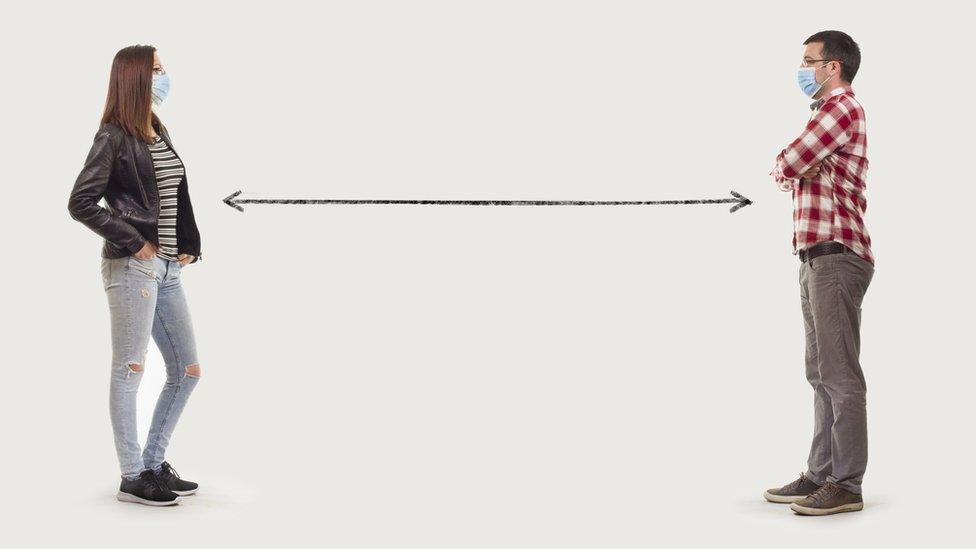
Staying more than two metres from other people, hand washing, and using face coverings all help reduce transmission
Tracers are looking for people who may be at risk of infection because they have been in contact with a positive case during the 48 hours before they developed symptoms or, if someone is asymptomatic, during the 48 hours before they took the test, up to 10 full days afterwards.
A close contact includes anyone who:
was coughed on by a positive case
had face-to-face contact with them at a distance of less than one metre, had skin-to-skin physical contact, or had other forms of contact within one metre for one minute or longer
who spent more than 15 minutes within two metres of the positive case
who travelled in a car or other small vehicle with the case, or has been in close proximity to them on public transport
The Covid-19 contact tracing app is supposed to kick in if you've been near a positive case in a shop for example.

What skills make for a good contact tracer?
Flintshire council is employing all the TTP staff for the counties in the Betsi Cadwaladr health board area.
Senior HR manager Sharon Carney said: "We need people with good listening skills, who are quite empathetic and politely persistent. We train them to listen to the pauses - is there something the person is not saying?"
They began recruiting externally in August, and new team members include hospitality workers, aircraft cabin crew and a retired police officer.
Many have said they are motivated by wanting to help.
"But we all wish it would go away," Mrs Thomas said.
Having dealt so closely with bereaved people this summer, Mrs Thomas reiterated that every Covid death is a tragedy, but her archive experience has also allowed her to put the current pandemic in its historical context.
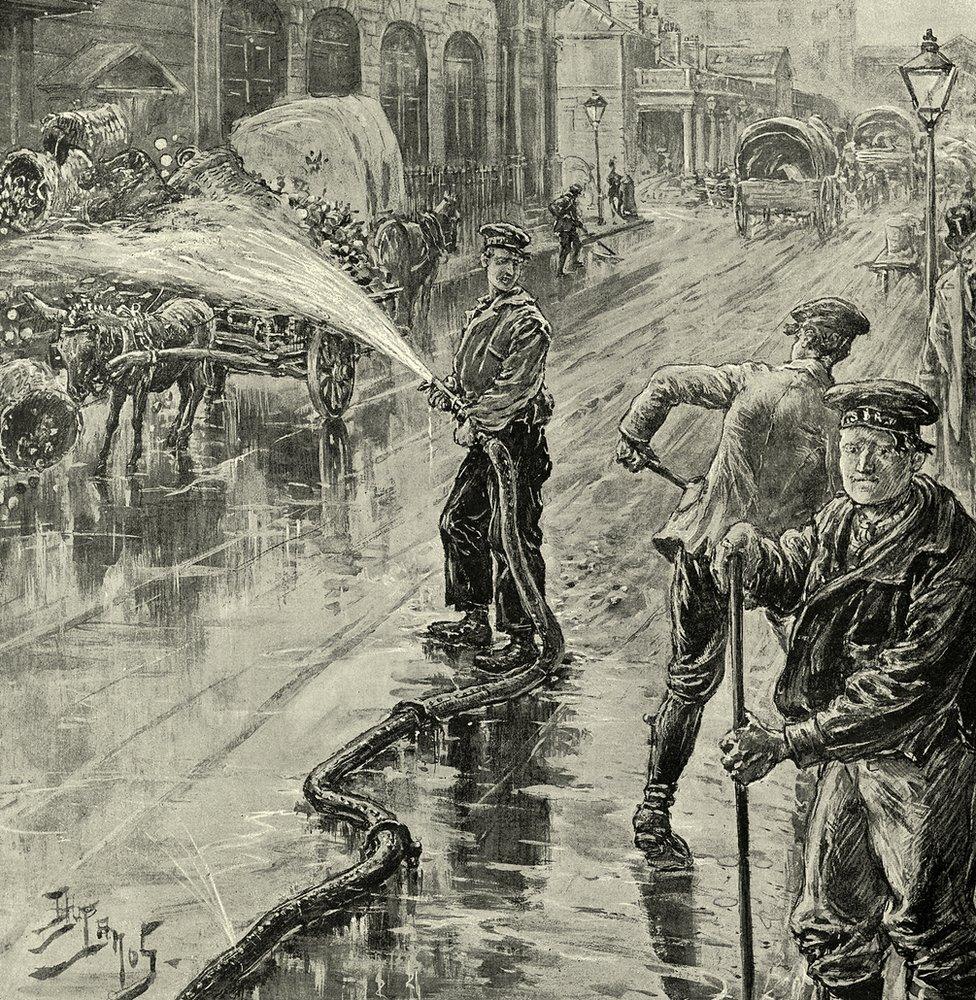
An illustration depicts streets in London being washed with antiseptic during a cholera outbreak in the 19th Century
"It's new to us - but it happened with Spanish flu, the plague, cholera.
"I came across a record from 1839 the other day that was a request from a parish council to the magistrates, asking for funeral wakes to be banned because they were spreading cholera," she said.
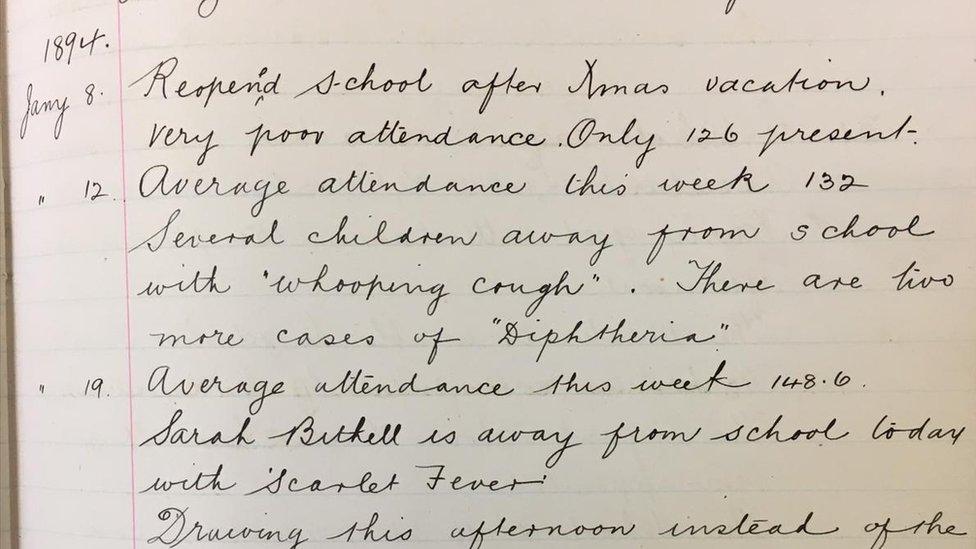
Mrs Thomas sees the pandemic in its historical context - this 1894 school log records children off school with illnesses such as diphtheria
"We also hold education logbooks for local schools from 1862... usually written by the head teacher [providing] a social record of how prevalent childhood diseases like measles, diphtheria, influenza, and scarlet fever were before mass vaccination.
"Whole classes would regularly be required to stay at home, not only to deep-clean classrooms but also to stop transmission of disease. Unfortunately, school log books also record many deaths of children from disease.
"What our ancestors had to put up with was unbelievable. Covid-19 will be over one day. We just have to get through it."

How good is Wales' contact tracing?

As case numbers rose, the overall speed of TTP in Wales slowed down relatively, although it picked up to a degree in November as the "firebreak" took effect.
Although the system has generally reached more than 80% of cases and close contacts, in reality the huge rise in transmission since September has meant thousands have not been contacted at all.
Overall since June, TTP in Wales has reached 47,992 positive cases, and 132,323 people "close contacts".
Almost 1,800 tracers and contact advisers are in place across Wales and the Welsh Government has put forward more funding to councils to recruit a further 1,300 staff for the winter.
- Published9 November 2020

- Published6 October 2021
